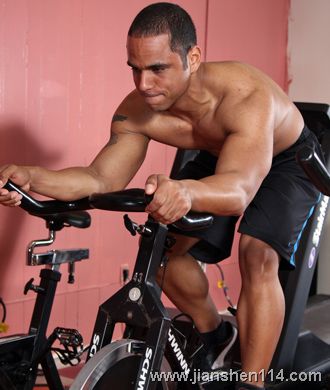You can eat these kinds of food before you exercise.
Fitness has become a sport in many people's lives, not only has the effect of reducing fat, but also makes our body more compact and fit. Among them, diet is also an important part of it. What should you eat for fitness? Do you understand? Diet before fitness Eat high-fiber biscuits between 1 and 2 hours before exercise, or yogurt, raisins, or fresh fruit. This will make you more energetic when you exercise. If you are about to participate in a running competition or other competition, you should have a low-fat, high-carbohydrate meal two or three hours before the game. Eat foods that you are familiar with and easy to digest. Fruit, yoghurt, bagels, or a bowl of cereal are good choices. If you have food in your stomach during exercise, blood will flow from the digestive tract to the muscles in your workout, causing stomach cramps and stagflation. If you exercise on an empty stomach in the morning, you need to have enough energy from the previous day to maintain your workout for 60 minutes to 90 minutes. If you feel that it is not convenient to have breakfast before the morning exercise, you can come to the carbohydrate-rich snacks before going to bed the night before. If you exercise later in the day and have been away from the last meal for more than 4 hours, you should have some snacks 45 minutes to 60 minutes before starting the exercise. Your food choices and preferences may vary, depending on the time you exercise, the exercise you perform, and the intensity of your exercise. You will soon know which food combinations are best for you. Dietary matters when paying attention to fitness 1, the key carbohydrates Carbohydrates are a preferred source of fuel for the body's physical activity and an integral part of the athlete's training program. Bread, rice, cereals, pasta, fruits and vegetables provide high-energy fuel for muscles, which can speed up the re-stocking of muscle fuel after exercise. If you don't get enough carbohydrates, you'll be more prone to fatigue. How much carbohydrate is needed, depending on the individual's training and personal requirements. For athletes with a large amount of training, the amount of carbohydrates needed per day is 6 grams to 10 grams per kilogram of body weight. For example, if an athlete weighing 60 kg trains for 2 to 4 hours a day, he needs about 360 grams to 600 grams of carbohydrate per day. 2, efficient hydrating drinks To get good exercise, drinks are essential. During high-intensity activities, decreased fluidity in the body increases the likelihood of heat stroke, heat exhaustion, or heat stroke. Drink before, during, and after exercise and use this as part of your workout plan. It is necessary to develop a habit of drinking more drinks, even in days when you are not exercising. Water, sports drinks, fruit, vegetable juices or mineral water are all good choices. It is recommended to drink cold water or sports drinks during exercise, training and competitions. Alcohol and caffeine can cause dehydration in the body, so it is not a beverage to replenish moisture. Drink 400 ml to 600 ml of beverage 2 hours before exercise, and 150 ml to 350 ml every 15 minutes to 20 minutes during exercise. 3, arrange eating time If you are about to participate in a running competition or other competition, you should have a low-fat, high-carbohydrate meal two or three hours before the game. Eat foods that you are familiar with and easy to digest. Fruit, yoghurt, bagels, or a bowl of cereal are good choices. If you have food in your stomach during exercise, blood will flow from the digestive tract to the muscles in your workout, causing stomach cramps and stagflation. If you exercise on an empty stomach in the morning, you need to have enough energy from the previous day to maintain your workout for 60 minutes to 90 minutes. If you feel that it is not convenient to have breakfast before the morning exercise, you can come to the carbohydrate-rich snacks before going to bed the night before. If you exercise later in the day and have been away from the last meal for more than 4 hours, you should have some snacks 45 minutes to 60 minutes before starting the exercise. Your food choices and preferences may vary, depending on the time you exercise, the exercise you perform, and the intensity of your exercise. You will soon know which food combinations are best for you. How to eat protein after fitness For people with increased muscle needs, eating high protein after exercise is essential. Protein is absorbed into the body and is broken down into amino acids, which are the basic raw materials for building muscle. Scientific research shows that weight training can also promote the secretion of growth hormone. Because the weight of the weight training on the muscle fibers caused by the micro-damage can stimulate the body's repair function, promote the secretion of growth hormone and amino acid synthesis. After weight-bearing training, the secretion of growth hormone can last for about two hours. Within an hour after a meal, it is the peak stage of protein absorption. Eating high-protein foods after training can make the peak of growth hormone secretion caused by weight-bearing training consistent with the peak of protein absorption, which is more conducive to muscle growth. The static state of the muscle tissue during sleep can further enhance the above effects, thereby receiving the training effect with half the effort. Permanent Hair Color Cream,Hair Color Cream,Permanent Hair Dye Color,Ammonia Free Hair Color DELIN HAIR COSMETICS , https://www.hairdyecolorfactory.com

